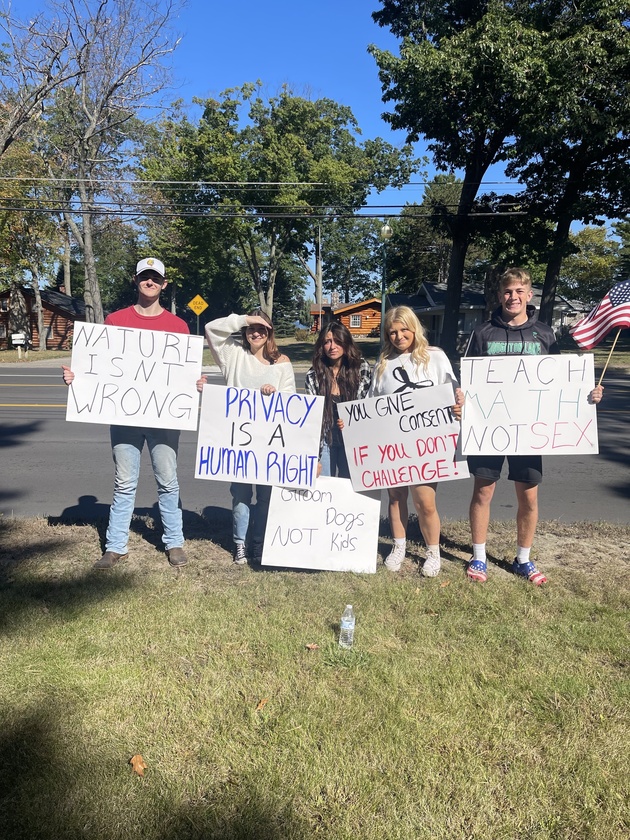

Jocelyn Benson won’t say if voter rolls are free from noncitizen registrants
Secretary of State Jocelyn Benson insists Michigan has done “more than any other state” to secure the state’s voter rolls, despite a federal investigation into repeated documented instances of noncitizen voting.
Confronted following Gov. Gretchen Whitmer’s final State of the State address on Wednesday, The Midwesterner asked Benson, “Can you assure Michiganders that there are no longer any noncitizens on the voter rolls?”
The Democrat frontrunner for governor dodged and told The Midwesterner she’s “actually done a lot, frankly, more than any other state, to ensure we’re driving down or increasing the security of our voter rolls.”
“So are there any other noncitizens on the voter rolls?” she was asked.
She dodged that, too. Click here to read more.

Massive EV Subsidies Not Paying Off
The future was supposed to have arrived this year in a cluster of counties just east of Atlanta in the form of a state-of-the-art factory that would churn out 400,000 electric vehicles a year. But when JoEllen Artz looks about her lifetime neighborhood, all she sees are holes.
“Those shovel holes they made in the ground? That’s it,” she said of the planned site of a Rivian manufacturing plant. “It’s awful, awful.”
The problem is not a lack of funds. On the promise of thousands of jobs, elected officials in Washington, D.C., and Atlanta have pledged some $8 billion to the project, including a $6.5 billion loan the Biden administration green-lit in its final hours.
Those loans are just two of the huge public bets, or investments, that state capitals and Washington, D.C., have made on EVs. While no one has calculated exactly how many federal and state dollars both Republican and Democratic elected officials have sent to that green sector, experts RealClearInvestigations consulted fixed the total north of $100 billion. Click here to read more.
Sen. Ashley Moody’s child sextortion bill moves to Senate floor
WASHINGTON — A bill sponsored by U.S. Sen. Ashley Moody of Florida aimed at cracking down on online sextortion is moving to the Senate floor after passing out of the Senate Judiciary Committee.
The legislation, known as the James T. Woods Act, would explicitly criminalize intentional threats to distribute child sexual abuse material and criminalize tactics frequently used by online predators to coerce minors. Supporters say the bill closes a gap in federal law that has forced prosecutors to rely on broader extortion statutes that do not specifically address sextortion. Click here to read more.

Time to rein in old MEGA gravy train
It was great to see legislators refuse to pass any new business subsidies in 2025. But the state is still going to pay $533.1 million more to select companies this year based on deals made two decades ago. That’s not right, and that’s not how policy is supposed to work.
Michigan operated a selective business tax credit program via the Michigan Economic Growth Authority and made deals with companies from 1995 to 2011. Deals lasted for up to twenty years, and companies received refundable tax credits based on the number of people employed in facilities covered by the agreement. With refundable credits, companies can get cash payments from the state when they receive credits worth more than what they owe in taxes. Click here to read more.

Austin 6th Street shooting: 3 dead; image shows apparent gunman as terror ties probed
AUSTIN, Texas - Three people, including the gunman, were killed, and 14 others were wounded in a mass shooting outside a bar in Austin's bustling Sixth Street entertainment district early Sunday morning that authorities said may have ties to terrorism.
At a press conference early Sunday, Austin Police Chief Lisa Davis said police received a call around 1:40 a.m. for reports of a “male shooting” at Buford’s, a beer garden in the city’s busy entertainment district.
When police arrived at the scene, they confronted a man with a gun and then “returned fire, killing the suspect,” Davis said.
According to the Associated Press, the Department of Homeland Security later identified the gunman as 53-year-old Ndiaga Diagne, a naturalized U.S. citizen born in Senegal who lived in Pflugerville, a suburb north of Austin. Click here to read more.
















